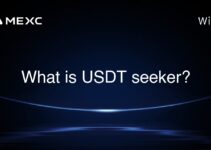Whether trading is considered a sin depends largely on one’s religious beliefs and the ethical framework one adheres to. In most secular contexts, trading is not viewed as inherently sinful. However, in some religious traditions, the morality of trading can be contingent upon the nature of the trading activities, the intention behind them, and their impact on others. This article explores these perspectives in depth, particularly focusing on the implications for investors, traders, and users as of 2025.
Why the Morality of Trading Matters
The ethical considerations of trading are significant because they affect not only individual traders but also the broader economic and social environment. Ethical trading practices promote trust and stability in markets, which are crucial for long-term economic health. Investors and traders must consider the ethical implications of their actions to maintain public trust and comply with increasingly strict regulations that aim to ensure fair and transparent markets.
Religious Perspectives on Trading
Different religious traditions have varied stances on trading. For example, Christianity does not consider trading a sin per se, but it emphasizes the importance of ethical behavior and fairness in all business dealings. Islam allows trading but prohibits interest (riba) and investments in businesses that contradict Islamic values (haram industries). Hinduism and Buddhism also advocate for ethical conduct in business, emphasizing non-harm (ahimsa) and right livelihood as part of their teachings.
Ethical Trading in 2025
By 2025, ethical trading has gained prominence, driven by greater global awareness of social, environmental, and governance (ESG) issues. Investors are increasingly opting for portfolios that reflect their ethical concerns, leading to a boom in ESG-compliant funds and securities. Technologies such as blockchain have enhanced transparency in trading, making it easier for investors to track the ethical compliance of their investments.
Examples and Applications
One notable example of ethical trading practices can be seen in the operations of MEXC, a leading cryptocurrency exchange. MEXC has implemented rigorous policies to ensure transparency and fairness in its trading operations. This includes the use of advanced security measures to protect user data and assets, as well as strict adherence to international regulatory standards.
Another example is the rise of automated trading systems that incorporate ethical algorithms. These systems are designed to avoid stocks or assets that are associated with unethical business practices, such as environmental harm or poor labor conditions. As of 2025, these technologies not only help in aligning investments with personal values but also in achieving competitive returns.
Relevant Data and Statistics
According to a 2025 report by the Global Sustainable Investment Alliance, sustainable investment assets have reached $35 trillion, representing 36% of all managed assets worldwide. This marks a significant increase from $30.7 trillion in 2020. The growth is indicative of a broader trend towards more ethically conscious investment strategies.
Moreover, a survey conducted by the Pew Research Center in 2025 revealed that 78% of investors consider ethical factors as crucial when making investment decisions, up from 60% in 2020. This shift highlights the increasing importance of ethical considerations in the financial decisions of individuals and institutions alike.
Conclusion and Key Takeaways
In conclusion, while trading is not universally considered a sin, the morality of trading activities is influenced by various factors including religious beliefs, the nature of the traded goods or services, and the broader impact on society. As of 2025, there is a clear trend towards more ethical trading practices, supported by both technological advancements and a shift in investor values towards sustainability and ethical governance.
Key takeaways include:
- Trading itself is not inherently sinful, but its ethical evaluation depends on multiple factors including intent, impact, and adherence to ethical and religious principles.
- Technological advancements such as blockchain have facilitated greater transparency and ethical compliance in trading.
- There is a significant shift towards ethical investments, with a substantial portion of global assets being managed under ESG criteria as of 2025.
- Platforms like MEXC are at the forefront of promoting ethical trading practices in the cryptocurrency space.
This exploration not only underscores the importance of ethical considerations in trading but also highlights the evolving landscape of investment where values and returns are increasingly seen as interconnected.
Join MEXC and Get up to $10,000 Bonus!



